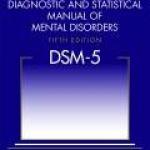Clarification Of The Dsm-5 Revisions By The Substance Use Disorders Work Group

To coincide with the release of the American Psychiatric Association’s (APA)Diagnostic and Statistical Manual of Mental Disorders (DSM-5), the APA developed a conference track consisting of more than 10 sessions to educate clinicians about the changes to the new diagnostic code. The first session, titled “Substance Use Disorders in DSM-5,” featured leaders of theDSM-5work group in charge of substance use and related conditions who presented an overview of theDSM-5changes and some of the controversies the committee faced when reviewing the new manual.
The biggest, and probably most controversial, change to theDSM-5substance abuse criteria is the merging of the two former diagnoses (substance “abuse” and the more severe “dependence”) and their separate scales into one category and scale that now includes three levels of severity: “mild,” moderate” and “severe”. This change prompted worries from the audience about whether insurance companies may be reluctant to fund treatments for a disorder that is “mild” by definition.
TheDSM-5work group answered these worries with assurances that some disorders already use the term “mild” without any ill effects to insurance coverage. They also offered a reminder that the Affordable Care Act (ACA) emphasizes funding prevention for health issues before they become a more serious disorder – a focus that will certainly include the treatment of “mild” disordered behavior. To help clinicians understand how the ACA will impact treatment and prevention services of gambling disorders, a representative from the U.S. Department of Health and Human Services will address this issue at the14thannual NCRG Conference on Gambling and Addiction.
The second set of changes the DSM-5 committee discussed were directly related to gambling disorders. The changes included the change in nomenclature from “pathological gambling” to “gambling disorder”, the deletion of the “illegal acts” criterion from the diagnostic symptoms for the disorder, the reduction from 5 to 4 criteria to be diagnosed with the disorder, and the movement of the disorder from to the “Addictions and Related Disorders” category. We were pleased to see that the committee specifically referenced several studies funded by the National Center for Responsible Gaming (NCRG) over the past 17 years, including studies byJon Grant, J.D., M.D., M.P.Hlat The University of Chicago,Ron Kessler, Ph.D.at Harvard School of Public Health, andHoward Shaffer, Ph.D.at Cambridge Health Alliance, a teaching affiliate of Harvard Med School.
All of theDSM-5 work groups will be leading more than 10 sessions throughout the APA annual meeting to educate clinicians about the impact of the manual’s revisions. Stay tuned toGambling Disorders 360°and the NCRG’sTwitterandFacebookpages for more details about the happenings here at the APA convention in San Francisco, Calif..
NCRG staffIn the NewsacademicalcoholAPAdisordersgamblingresearchresponsible gaming

